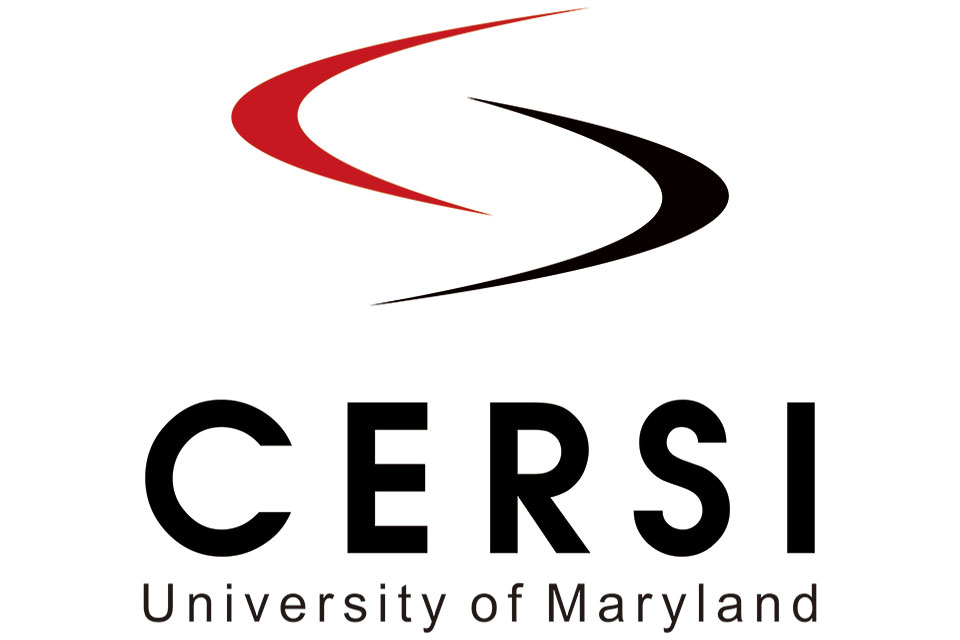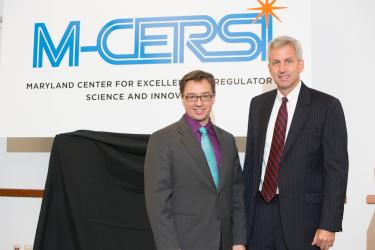Grant Increases Access, Safety of Generic Drugs
New center established by the School of Pharmacy, in collaboration with the University of Michigan, will increase access to safe and effective generic drugs through collaborative research, training, and exchange.

By Mary Therese Phelan
September 29, 2020
The University of Maryland School of Pharmacy (UMSOP) and University of Michigan College of Pharmacy (U-M) and have received a $5 million grant from the U.S. Food and Drug Administration (FDA) to establish a joint Center for Research on Complex Generics (CRCG).
The CRCG will increase access to safe and effective generic drugs through collaborative research, training, and exchange. The center will facilitate information sharing between graduate students, postdoctoral fellows, those working in industry, and faculty at both universities.
“Complex generic drugs are, in general, more difficult to develop due to complex formulation or mode of delivery, resulting in fewer complex generics on the market,” said Sally Choe, PhD, director of the Office of Generic Drugs in the FDA’s Center for Drug Evaluation and Research. “By awarding this grant, our goal is to support research and development of these products so they can be made available to patients in a more timely way. By supporting increased competition in the generic market, we can help provide more options for Americans and potentially bring down prices on these important therapies.”
A team of 24 investigators from UMSOP and U-M will allow the center to offer broad research capabilities from formulation development and analytical characterization to computer (in-silico) models and animal testing to clinical trials and post-market assessment of patient data.
U-M and UMSOP faculty have a wealth of experience in multiple facets of the complex generics field. Maryland and Michigan faculty have expertise in formulation and evaluation of complex drugs, as well as exceptional laboratory and training space, to move the development and assessment of complex generics forward. Both universities have a long track record of FDA-sponsored clinical research, with a focus on formulation design and performance.
The Center is co-directed by James E. Polli, PhD, the Ralph F. Shangraw/Noxell Endowed Professor in Industrial Pharmacy and Pharmaceutics at UMSOP, located at the University of Maryland, Baltimore (UMB), and Anna Schwendeman, PhD, associate professor of pharmaceutical sciences at U-M. A 1993 graduate of U-M with a PhD in pharmaceutics, Polli’s research interests focus on oral drug formulation and pharmokinetics.
Ultimately, Schwendeman and Polli hope the Center will make complex analytical assays and pharmaceutical development expertise accessible to the generic industry and eventually lead to more rapid approval of high quality and accessible generic products.
Schwendeman’s research interests focus on nanomedicines for treatment of atherosclerosis. She spent 12 years in the pharmaceutical industry at Cerenis Therapeutics, Pfizer, and Esperion Therapeutics.
“When the call for application came out in 2020,” recalled Schwendeman, “it was much broader in scope than our original plan. Jim Polli approached us about submitting a joint application between U-M and UMSOP. We agreed because both institutions have a history of interactions with OGD and FDA. In addition, UMSOP has a FDA funded center on regulatory science (M-CERSI) and they have experience organizing regulatory workshops, webinars, and holding scientist exchange programs. U-M and UMSOP had complementary scientific expertise in the area of complex generics, making us the perfect partners for this project.”
Generic drugs account for about 90 percent of prescriptions filled in the United States. However, some drug products are more complicated than others and denoted to be complex products. Examples are products with complex active ingredients, complex formulations, complex routes of delivery, and complex drug-device combination products.
There are barriers to implementing new FDA guidance and achieving first-cycle approvals for complex generics. For example, some newer analytical equipment, cutting-edge methodologies, software, and in-silico models are not readily available to the generic industry. The scientific intricacies of complex generics may require additional coordinated efforts between stakeholders to overcome these hurdles through stronger communication, better education, and more thorough research in complex generic product development to increase the rate of first-time product approvals. Both FDA OGD and the Association for Accessible Medicines (AAM), which represent many generic companies, have acknowledged the need for “neutral ground communication” to facilitate the understanding of regulatory positions and to provide feedback on product, process, raw material, and methodological challenges facing generic drug developers.
“The ‘pre-competitive space’ for potential complex generic products is often poorly developed, at least in terms of pre-existing knowledge in the public domain,” said Polli. “With at times a dearth of pre-existing knowledge about complex drug formulation and pharmacokinetics, the development and assessment of potential generic drugs is challenging. The Center for Research on Complex Generics aims to fill this gap by contributing to the ‘pre-competitive space’ for potential complex drugs.”
UMSOP investigators bring expertise in drug-device combination products, inhalation and nasal products, topical dermatologic products, complex mixtures, nanomaterials, quantitative pharmacology, and patient substitution of generic drugs. U-M investigators bring expertise in in-vivo predictive dissolution, oral absorption, physiologically-based pharmacokinetics modeling (PB-PK), long acting parenteral, complex nanoparticle products, complex peptide products, microscopy imaging, and machine learning/AI.
Funding from the grant will support three main activities:
- Facilitate communication between OGD, the Center, and generic industry stakeholders to better understand the needs for training, research and development, and implementation of new regulatory requirements.
- Promote generic industry training through workshops, webinars and hands-on demonstration and engage fellows, students and the public in complex generics research.
- Conduct collaborative research and technique development that facilitate complex generics.
Both schools will host educational conferences. In light of the novel coronavirus pandemic, all education activities that are currently being planned will be held virtually.
“Our last pillar is our research mission,” added Schwendeman. The center will facilitate collaborative projects by established researchers within the industry and the FDA, and will host the Visiting Scientists Program for OGD and generic industry fellows.
Within the next month, the Center will survey the generics industry and formulation scientists about research and training priorities. “We wish to obtain input about which specific complex products, which analytical techniques, and which potential FDA guidance are needed, to facilitate the development of complex generics,” Polli said.



